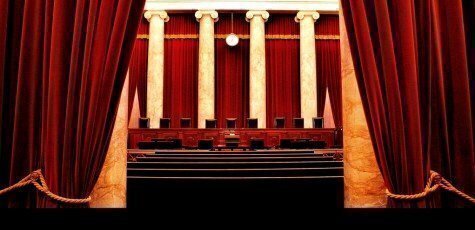New Jersey’s long struggle to legalize single-game sports betting within the state will likely end, one way or another, with a Supreme Court decision focusing on a broad constitutional issue.
 On Tuesday, the Justices took the cases of Christie v. NCAA and New Jersey Thoroughbred Horsemen’s Association, Inc. v. NCAA, which will be considered as one case by the Justices later this year. The cases’ acceptance by the Court marks a big victory, by itself, for those who see legalized betting, a la Nevada, as a potential windfall for the state.
On Tuesday, the Justices took the cases of Christie v. NCAA and New Jersey Thoroughbred Horsemen’s Association, Inc. v. NCAA, which will be considered as one case by the Justices later this year. The cases’ acceptance by the Court marks a big victory, by itself, for those who see legalized betting, a la Nevada, as a potential windfall for the state.
In the Christie case, New Jersey’s attorney general’s office and veteran litigator Ted Olson finally got the issue at the finish line after a series of appeals that go back to 2014. The Thoroughbred Horsemen’s Association’s case made much of the same arguments.
Both lawsuits asked the Justices to consider if a federal law that limits sports betting in New Jersey violates the 10th Amendment’s anti-commandeering clause.
The anti-commandeering clause has received a lot of attention recently in an unrelated matter – as the primary defense made in several lawsuits against the Trump administration’s sanctuary cities polices.
The 10th Amendment simply reads that, “The powers not delegated to the United States by the Constitution, nor prohibited by it to the States, are reserved to the States respectively, or to the people.” Since 1976, several Supreme Court decisions have found that it was the amendment’s intent to limit the ability of the federal government to “commandeer” state officials or a state legislative process.
In New York v. United States (1992), Justice Sandra Day O’Connor found that a federal waste-management law "would 'commandeer' state governments into the service of federal regulatory purposes, and would for this reason be inconsistent with the Constitution's division of authority between federal and state governments." And in Printz v. United States (1997), Justice Antonin Scalia said that a federal gun control law that forced local law enforcement to perform handgun background checks went against the 10th Amendment’s principles. “The Federal Government may neither issue directives requiring the States to address particular problems, nor command the States' officers, or those of their political subdivisions, to administer or enforce a federal regulatory program,” Scalia said. “Such commands are fundamentally incompatible with our constitutional system of dual sovereignty.”
In the New Jersey sports betting cases, the Third Circuit federal appeals court in 2013 ruled against a state challenge to the federal Professional and Amateur Sports Protection Act. The statute had allowed Nevada and several other states to have sports betting, but New Jersey decided not to apply for permission to do so. Instead, decades later it enacted its own law to control sports betting. The Supreme Court didn’t take an appeal from the state in 2014.
New Jersey then repealed existing state oversight regulations on gambling in another attempt to enact sports betting and make it “a purely private matter.” Again, the NCAA and the major professional sports organizations sued New Jersey. And again, New Jersey lost in court. But the case was heard by a full en banc appeals court, with nine judges voting against the state and three judges dissenting.
In its second plea to the Supreme Court, New Jersey argued that the en banc appeals court went too far. “The majority thus reached the remarkable and unprecedented conclusion that the Constitution’s federal structure affords to Congress the power to prohibit States from repealing their own laws,” it said. “This Court’s review is essential to ensure that the anti-commandeering doctrine continues to serve its function of preserving our federalist system.”
The Trump Justice Department, in addition to the sports organizations, asked the Supreme Court to deny the case for a second time, citing numerous conflicts between the federal law and the state laws, and the lack of legal challenges from other states.
But at least four Supreme Court Justices saw enough in New Jersey’s appeal to ask for full arguments at the Court, most likely later this year.
Scott Bomboy is the editor in chief of the National Constitution Center.







